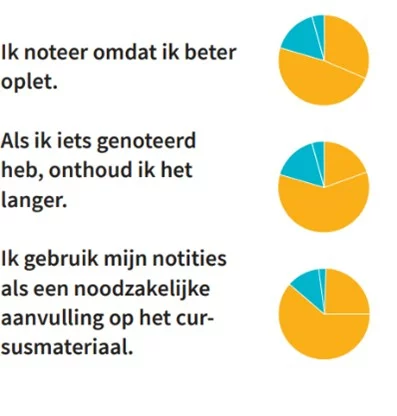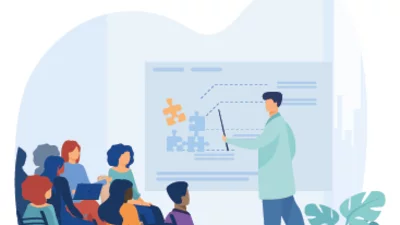
Below you will learn how to: better understand vocabulary used during lessons, listen attentively and purposefully and take smart notes.
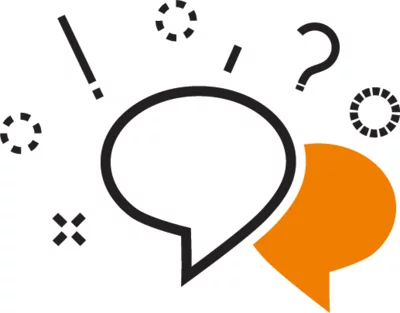
Vocabulary
In class, you are faced with many words: words used by your lecturer, words you read in your course, words appearing in the PowerPoint presentation, words you will need to reproduce on exams, and so on. Some words will sound familiar to you, others will be new to you, characteristic of the academic context or to your professional domain.
Anyway, it is normal you do not immediately understand all the words used in class. How do you deal with this? You can read about that below.
Jump to: understanding - looking up - practising
What do you need to do?
Tip 1: understanding - teach yourself some new vocabulary strategies
Is the word important?
You do not need to know all the words in a text to understand what the lesson is about. First, determine whether the word is important. Only if it is important to understand the sentence or the text, you can apply vocabulary strategies.
Examples:
- These research results, published in the leading magazine Nature, have shown that subtle variations in DNA can cause changes in proteins.
- He bought the house for the exuberant amount of 500,000 euros and had to cough up so many notary fees.
Can I derive the meaning from the context?
Look for clues about the meaning in the context. Look at the illustrations accompanying the text, read the sentences before and after the word, or look out for synonyms, explanations or examples in the text.
Examples:
- The government has announced new measures: pubs close at 10 p.m. contacts must be restricted and sports can only be done outside.
- Due to budget-cuts, two small schools will merge next year. It concerns Sint Lodewijkscollege and Sint Pietersinstituut. The merger has several advantages for the pupils.
Do I know words that are similar?
Does the word sound familiar to you? Do you know words from the same word family? Or is the word similar to a word you know in another language? Retrieve this knowledge and see if you can derive the meaning of your word from it.
Examples:
- Monnaie > money
- Convoie exceptionnel > I have seen this French term on trucks: exceptional transport
- Homogeneous > I have seen this word in physics.
Do I understand chunks of the word?
Do I understand chunks of the word?
Examples:
- Drawback > draw + back
- Passer-by > passer + by
- Univocal > one + voice: having only one possible meaning
Do I need to look up the word?
You cannot use any of the above strategies to find the meaning of the word? Then ask your fellow student or lecturer for help, especially if you need the word to understand the lesson. Or look up the word.
Tip 2: looking up - look up the meaning of the word
There are several ways to look up words.
- The first way is a dictionary. The most well-known Dutch dictionary in Flanders is Van Dale. Via the website of the library, you can consult the online version of Van Dale. Surfing from home? Then make a VPN connection first. Van Dale also has translations into French or English. For explanatory English dictionaries, go to Oxford Learner’s Dictionary.
- You can also google the word you do not understand. Keep in mind to choose specialised websites.
- Does it concern an academic word, then choose the academic glossary of Artevelde UAS. There you will find more formal, complex or abstract words, including the meaning and an example sentence. Do you want to make this vocabulary your own? Practise using these flashcards, the UCLL tool Orient or the page 'Delenderwijs'.
- Looking for expressions? Check the website 'Onder woorden'. You enter a word, and you get an expression containing that word.
Tip 3: practising - put together a word file
Some words you just have to know. They are essential to understand your subject, your lecturer expects you to be able to reproduce the words during an exam or task and/or they are part of the terminology of the profession you are studying for.
To better remember these words, you can put together a word file. Write the word you want to know in the first column, add an example sentence next to it and finally add a synonym, translation, or description of the word to the third column. Your word file is meant to grow as the lessons progress. You can compile one per subject or chapter.
Tip: Also add the article to nouns and prepositions.
If you want to practise the words, cover the last two columns or write each word on a flashcard. You will find an example here.
| Word | Example sentence | Synonym, translation, description | ||
|---|---|---|---|---|
| De factuur | De printer is hersteld maar het bedrijf stuurde nog geen factuur. | The invoice | ||
| Confidentieel | De persoonsgegevens van de cliënten op stage zijn confidentieel. | Confidential | ||
| Opting for | We can opt for an invoice by mail or email. | Choose | ||
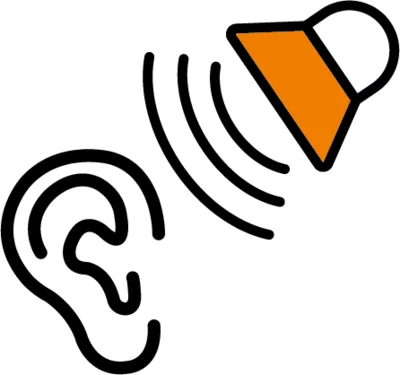
Listening
Attending a lecture is very intensive. You get to process a large amount of complex information at a strong pace. These listening strategies will get you started.
Jump to: listening tips - practicing
Listening tips
Tip 1: take some time for exploration before the lesson
To be able to listen well, you need to give your brain a helping hand. So, before class, take some time to activate your memory, prepare for what is to come, or brush up on the information that was already stored.
There are several ways to do this. Read the heading of the lesson to come, walk through the slides, or look at the introduction to the corresponding chapter in your course. You might find the time to review your notes from the previous class? Check what you can remember spontaneously, reread what you have written, or scroll through the Canvas course or the PowerPoint presentation.
Whatever you do, you will find listening easier!
Tip 2: establish as many links as possible
Try to establish as many links as possible during class, not only with the previous lesson but also with your own experiences, the learning content taught in other subjects, your internship, the job you want to do, or current affairs. By doing so, your memory gets a foothold, so that new learning content is just an expansion of the knowledge that is already in your head.
Ask yourself one of the following questions:
- Does the learning content sound familiar?
- What do I already know about this?
- Can I come up with an example?
- How can this be useful for my future job?
Tip 3: focus on the essentials
Not everything you hear in class can be immediately stored and memorised. So focus on the essentials in class. It is important that you
- understand the broad lines of the lesson (‘Explain in two sentences what the lesson is about.'),
- can structure what is being said (‘This is an example of the theory') and
- can establish links (This case is good evidence of part one of the definition I saw last lesson').
You will find the secondary issues or in-depth information in your course or on the slides.
Tip 4: prick up your ears a bit from time to time
Sometimes you need to focus on something specific during the lesson.
E.g. Your lecturer asks three questions at the start of the lesson, which you answer afterward. As soon as you hear the information you were looking for, you prick up your ears and listen more carefully than usual. Sentences, such as 'this is important for the exam' or 'you really have to know this part', should ring a bell.
Sometimes you may not understand a word, and you tell yourself to pay extra attention to that word in order to get the context or new information. This too will increase your degree of attention for a while.
Tip 5: adjusting yourself
- Do you find it hard to listen?
- Do you feel that you are easily distracted?
- You do not understand what your lecturer is saying?
Then find out why and adjust yourself. Perhaps your attention is caught by social media, your neighbour, or noise in the corridor; things you can easily solve - possibly after the break. You might decide to take notes so that you can focus more easily? Or you might put a question mark next to the chapter that you thought was more difficult, and then ask your lecturer or a fellow student for an explanation.
Anyway, you personally take action.
Tip 6: take 1 minute to reflect after the lesson
After the lesson, it is also interesting to press the pause button and see how it went:
- Have I understood all that was said? What did/will I do if this was not the case?
- Am I satisfied with my notes? What caused this?
- Have I captured the essence?
By doing this now and then, you work on your listening skills.
You can learn how to listen well
Taking classes can be quite challenging. Yet we notice how students who get started with the above tips get more from their lessons.
You can also practice listening. Via six online sessions of twenty minutes each, you train your listening skills. You best plan one session per week.
Go to the tool, make an account or log in with a Google account. Click '+join class' and enter the following code: getokbe.
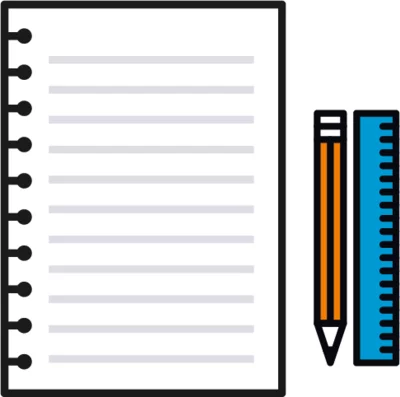
Taking notes
There are benefits to taking notes! You keep your attention on the lesson, you structure the information you receive, and you give yourself the chance to process the learning content a first time so you will remember it better in the future. This was not only demonstrated by researchers, most of your fellow students agreed as well.
Tip 1: you can learn how to take notes
Not everyone has the same note-taking style. So try to find what works for you. You can find all sorts of tips online, like the Cornell Note Taking method. Check with your fellow students how they go about this, or take a look at the Taking Notes checklist. This contains all our main tips.
Example of notes on 'How our brain works' with tips
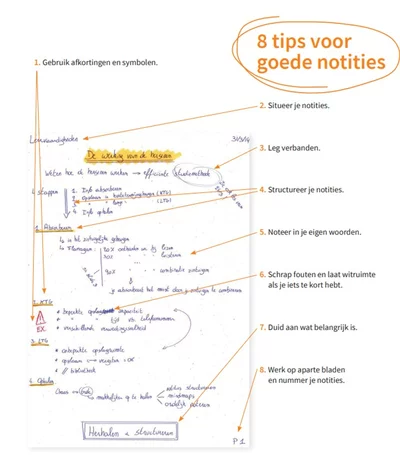
Tip 2: paper or digital, what do I choose?
Taking notes on paper makes memorisation easier!
You can never write down everything your lecturer says, writing is too slow for that. So, you are forced to select what is important, paraphrase what you hear, and summarise, draw schedules, or make connections with arrows etc., and exactly this active approach improves memorisation.
If you do choose to take notes on your laptop, then make sure you
- disable all pop-ups in advance. Those will only distract you.
- also put social media, mail, or games away for a while. Website blockers like Cold Turkey or Focal Filter can help you. Multitasking is very difficult for our brain!
- do not literally write down everything the lecturer says. Prove that you reflect on what you write down.
- structure your notes. Your notes are not a syllabus, it is how you process those for the first time.
Additionally, there are numerous convenient apps that can help you take notes. Evernote is undoubtedly the most powerful, but Microsoft OneNote, the online notebooks of Moleskine, and Penultimate work well too.
Tip 3: am I doing well?
Having doubts about your notes? Check with your neighbour or a fellow student. Do they approach it in the same way as you do, or can you learn from them?
